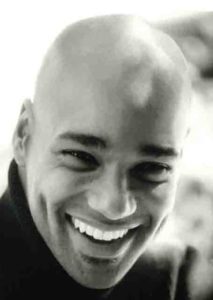 FSU Alumnus Choreographic Fellow Darrell Jones returns to MANCC for a year-long residency to further his archival research around the work of his late father, Dr. William R. Jones, who was an internationally recognized and celebrated activist, scholar, philosopher, theologian, and educator. The first Director of the Black Studies program at FSU, Dr. Jones dedicated his long career to the analysis and methods of oppression, and to working with others in their anti-oppression initiatives. A fundamental part of his work was the exploration of religious humanism and liberation theology. FSU Alumnus Choreographic Fellow Darrell Jones returns to MANCC for a year-long residency to further his archival research around the work of his late father, Dr. William R. Jones, who was an internationally recognized and celebrated activist, scholar, philosopher, theologian, and educator. The first Director of the Black Studies program at FSU, Dr. Jones dedicated his long career to the analysis and methods of oppression, and to working with others in their anti-oppression initiatives. A fundamental part of his work was the exploration of religious humanism and liberation theology.
William’s line of research has been highly influential in the development of Darrell’s thinking as an artist. As William’s tools were often words and speech, Darrell’s are cellular, embodied, and expressed mainly in the physical and three-dimensional world. Through his own research of experimenting and analyzing oppression as it lives in the body, Darrell has sought to excavate how individuals accumulate identity and mirror culture through movement. His materials have explored the imprint of societal oppression on bodies around the intersections of race and gender with tactics of employing rigorous tasks in the studio to discover choreographic material that arises when the body is pushed to the edges.
While at MANCC, Darrell will continue to work through these physical lines of inquiry, while also navigating his father’s office space, which houses an extensive archive encompassing authored books and articles, a large selection of research books, taped lectures, and 35 years of teaching materials around mechanisms of oppression and the intersectionality of race, gender, and class. He maintains a personal interest in cataloging these materials as a creative tool with applications in movement research and as a model in embodied archival processes.
A longtime collaborator with Jawole Willa Jo Zollar (Urban Bush Women), Bebe Miller (Bebe Miller Dance Company), and Ralph Lemon. Darrell is currently involved in several gatherings around ‘living’ archives. The process of archiving his father’s work with his own creative applications is concurrent with these conversations around choreographic archival materials.
This is Darrell’s second MANCC residency as lead artist. In 2013, he came for multiple weeks to further his evening length work, Hoo-Ha, for which he won the 2013 Juried Bessie Award. His investigations, initially rooted in voguing, continued to evolve toward the subversive energy that this dance form imparts. Darrell has also been in residence with MANCC artist Ralph Lemon. |